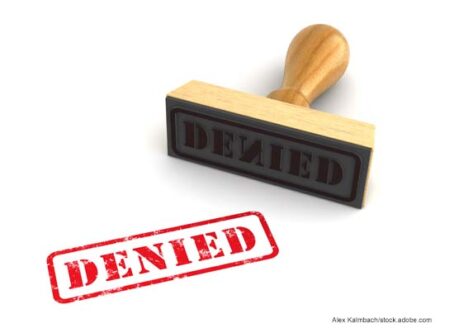Hours-of-service lawsuit calls FMCSA’s changes ‘arbitrary’
The International Brotherhood of Teamsters and several safety groups say the Federal Motor Carrier Safety Administration acted “arbitrarily and capriciously” when it updated the hours-of-service regulations.
On Tuesday, Feb. 15, the groups filed its petitioners’ reply brief to the U.S. Court of Appeals for the District of Columbia Circuit. The lawsuit stems from FMCSA’s hours-of-service rule changes that went into effect in September 2020. The Teamsters, Advocates for Highway and Auto Safety, the Citizens for Reliable and Safe Highways, and Parents Against Tired Truckers targeted changes to short-haul operations and the 30-minute break requirement, contending both were made without proper justification.
FMCSA made four changes to the hours of service in an attempt to give truck drivers more flexibility within the rules. The short-haul operations provision increased the on-duty limits from 12 to 14 hours and from 100 air-miles to 150. The 30-minute break provision was modified to allow on-duty, nondriving events, such as fueling or inspecting the load, to meet the requirement. The rule changes also altered the adverse driving provision and split-sleeper options, but those updates are not being contested in court.
Increased risk?
“With respect to the short-haul changes, FMCSA failed to account for the risks of driving later in the duty day, to reasonably address a study showing that short-haul drivers have a 383% higher crash risk than other drivers, and to adequately explain why the changes will not increase occupational injuries or affect compliance with hours-of-service regulations,” the petitioners wrote. “With respect to the changes to the 30-minute break requirement, FMCSA failed to analyze the effects of the changes on driver health or to consider the effects of fatigue due to cumulative on-duty hours or nondriving work.”
The lawsuit was filed shortly before the rules took effect in September 2020 but was then put on hold early in 2021 to give a new administration time to familiarize itself with the case. The lawsuit resumed late in 2021 with the petitioners focusing on the short haul and rest break provisions.
FMCSA responded by claiming the petitioners lacked standing by not even attempting to identify members who have suffered harm from the rule. In addition, FMCSA called the changes incremental and noted that it developed the rule over two years after receiving more than 8,000 public comments.
OOIDA calls updates ‘common sense’
The Owner-Operator Independent Drivers Association – serving as an intervenor in the case – also defended the changes.
“FMCSA’s changes to the 30-minute break requirement and to the scope of the short-haul exemption represent commonsense updates to the hours-of-service rules that significantly increase flexibility for commercial truck drivers while maintaining safety at least equivalent to previous versions of these rules,” OOIDA wrote. “In adopting the final rule, the agency relied on ample evidence from the administrative record demonstrating that more hours-of-service flexibility means more efficient trips and less stress for drivers, improving safety on the road.”
Teamsters respond
The petitioners had their first opportunity to reply to FMCSA and OOIDA on Feb. 15. Responding to claims that its cased lacked standing, the Teamsters attempted to demonstrate how its members are harmed by changes to the hours-of-service regulations.
“Members of (the) Teamsters are drivers directly regulated by the final rule,” the petitioners wrote. “Moreover, the final rule’s changes diminish the union’s bargaining position in negotiations over collective bargaining agreements, and they cause competitive harm to Teamsters members whose collective bargaining agreements entitle them to protections equivalent to those that existed before the final rule.”
Final reply briefs are due March 8, and oral arguments in the case are scheduled for April 25. LL









